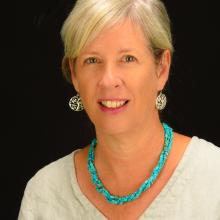Enhancing Delivery of Online Education: Developing a Teaching Guide to Support Faculty
Concurrent Session 6


Brief Abstract
In this Education Session, presenters will share their process of developing a Faculty Teaching Guide when their program moved to synchronous/asynchronous/blended. They will provide participants with an overview of their activities, a Teaching Guide template, and an opportunity to explore how to write a guide and what content to include.
Presenters


Extended Abstract
In an attempt to support part-time/adjunct social work faculty moving from in-person to on-line synchronous and asynchronous teaching amid an ongoing pandemic, two social work educators (who geek out on pedagogy) developed a teaching guide. Their initial process, discussing how they might support each other in their own learning, evolved into sharing highlights with other faculty. During Spring 2020 and the rapid transition to online teaching, the presenters’ university offered numerous faculty development trainings focused primarily on technology and navigating learning management systems. The presenters were interested in a deeper look at pedagogy and sought out webinars, and trainings on best practices. They listened to podcasts and scoured the recent literature, reading any articles and books that might provide ideas for teaching and supporting student learning during COVID pandemic. They met weekly to share thoughts, generate new ideas, and develop a list of educational resources which then quickly grew into a guide.
The presenters realized the significance of the mutual support they provided to each other and strategized ways to enhance and build community for adjunct faculty during the COVID pandemic. Most adjunct social work faculty are employed full-time outside of the university and although they greatly enjoy teaching, asking them to attend frequent trainings is unrealistic. The school of social work supports adjunct faculty through mentoring, lead instructor developed syllabi, initial and bi-annual trainings with video options for building learning communities, teaching practices, grading, and so forth. The expanded resource list and bibliography developed into a teaching guide as an additional supplemental training option. As lead instructors for their school of social work, the presenters also created individual guides for the courses they taught. Both are now involved in developing a fully online MSW program.
As a Hispanic Serving Institution, the presenters were particularly interested in including information in the Teaching Guide that would benefit faculty teaching students from diverse backgrounds. Students may be first-generation college students and are not adequately prepared for an online educational environment academically, socially or financially. Faculty require education and support in understanding the unique needs of our diverse student bodies. Including material for faculty in the Teaching Guide that helps them address the challenges of creating an environment that promotes teaching for diverse populations will be addressed in this workshop. For example, Culturally Responsive Teaching and a Community of Inquiry Model are two suggested models that help to address topics like facilitating interpersonal dialogues and identifying course material that reflect diversity. Solutions include using “real world” content, assigning group work and scaffolded learning.
This Education Session will provide participants with a brief overview of the presenters’ process for developing a teaching guide to support and enhance faculty who moved to teaching in an online environment during COVID. The Teaching Guide has continued to be a positive resource for faculty, adjunct faculty and new faculty and continues to be refined to meet the changing needs of online education and is potentially a tool that can be used in any academic program. The presentation will consist of a brief Power Point presentation. The purpose of the Power Point presentation will be to provide background information on the process of developing the Teaching Guide to include why the format was chosen, what content was chosen and why and what are the overall goals of the Guide. This review will be approximately 10 minutes. A Teaching Guide Template will be provided for an interactive process to explore how the template might be applied by participants in their programs and to identify what content might be most useful. Before the template is reviewed, the participants will be given Reflection Questions to consider prior to the interactive part of the presentation. Questions will include: What part of this Guide would be effective for your school? What do you think is missing? The review of the template would be approximately 10 minutes. The participants will then break out into small groups to collaborate and brainstorm about topic areas and content for a Teaching Guide that would be specific to their content area and school. Participants will return to the large group to share their findings.
Learning Objectives will include: Developing strategies for faculty development/training to include pedagogical support for part-time adjunct instructors, assessing potential benefits for a school specific teaching guide, and identifying topic areas and content for a teaching guide

